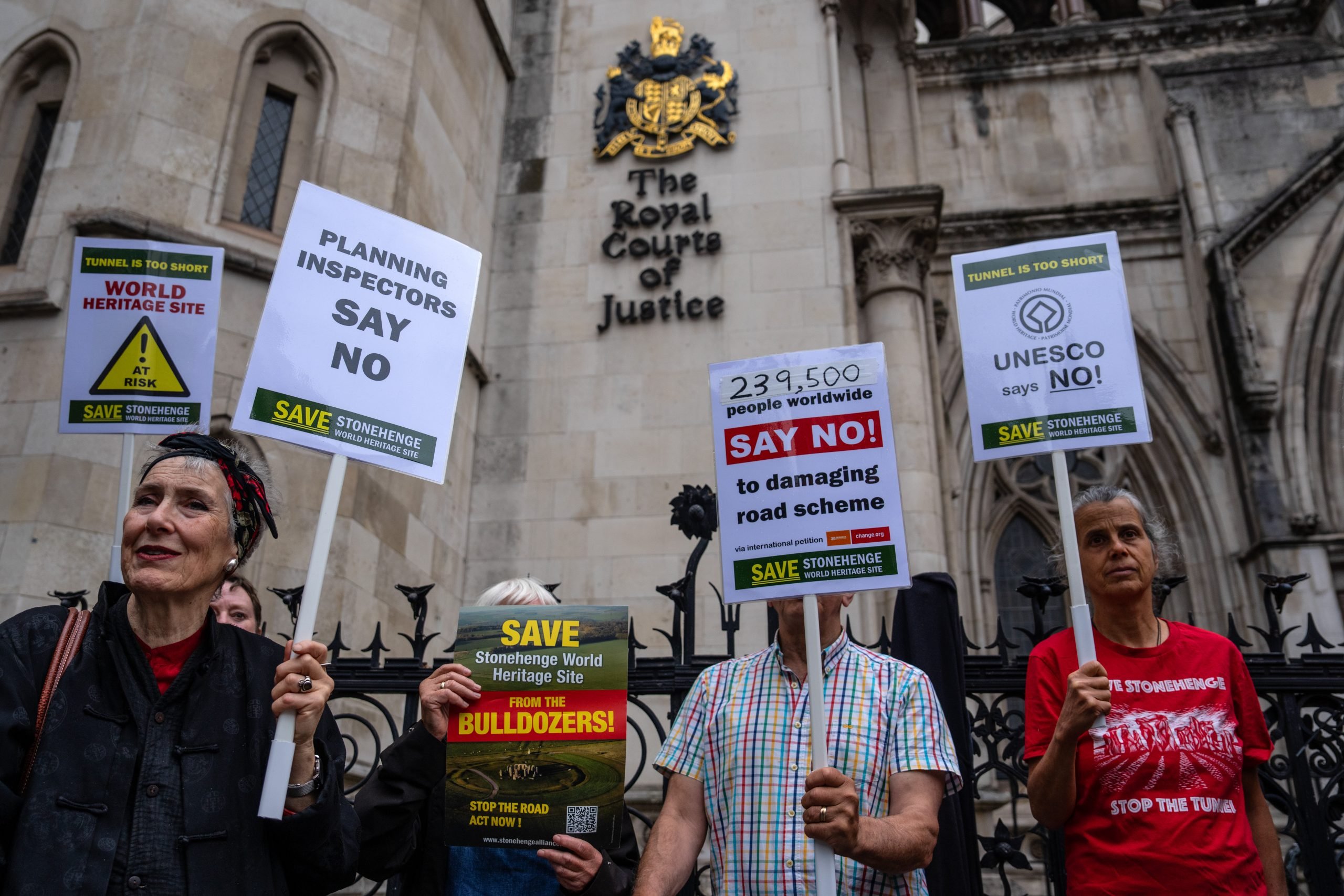
A legal battle to prevent the construction of an underground highway near Stonehenge has ramped up as lawyers for campaigners argue that the U.K. ministers who approved the plans were “inadequately briefed” about the possible alternatives. Meanwhile, a UNESCO committee has decided to remove the monument from its list of endangered sites.
A three-day hearing at the Royal Courts of Justice in London last week is the latest in an long legal struggle to stop the tunnel since the plan was originally approved in 2020 by then-transport secretary Grant Shapps, a decision that was upheld by his successor Mark Harper last year.
Campaigners have also formally handed both the Department of Culture, Media and Sport and the Department of Transport a petition against the proposed highway tunnel, which has been signed by over 239,000 people. In a press release, they said they were “cautiously optimistic that the new [Labour] government will look more favorably at the arguments against the road project than their Tory predecessors” following a general election held earlier this month.
The plan to reroute the A303 dual-carriageway is supported by English Heritage, which manages Stonehenge. The road currently passes right by the prehistoric monument but would be replaced by a public walkway and cycle path, removing the sight of traffic while also preventing millions from seeing Stonehenge for free when driving past. The construction of a 3.3km underground tunnel in its place, which would widen the existing road, is projected to cost around £2.5 billion ($3.28 billion).
A rendering of the A303 tunnel. Courtesy of National Highways.
Since its inception, the proposal has proven highly controversial, with multiple public bodies warning that it could pose a threat to Stonehenge and the structural integrity of the surrounding site. The U.K. government agency Planning Inspectorate feared it could cause “permanent, irreversible harm” and UNESCO threatened to strip the monument of its World Heritage Site status and place it on its “World Heritage in Danger” list if the plan goes ahead.
In June, UNESCO’s World Heritage Committee published a draft decision to add the ancient site to the list, but in a World Heritage Committee meeting held in India on July 24, the the decision was overturned. The committee instead asked for an updated report on the state of conservation of the property by December 2025.
Speaking to the London Times, English Heritage’s chief executive Nick Merriman, who was appointed to the role last fall, said he sympathized with the campaigners but that “there are misconceptions about the archaeological damage that tunneling might do.” He claimed that, if the project goes ahead, “the prehistoric landscape round the stones would be restored and there would be big economic benefits to southwest England in having the road widened.”
The A303 runs past Stonehenge in England. Courtesy of National Highways.
He added: “For most of the tunnel’s length it will be far too deep to impact on any archaeology, which is likely to be within a metre or two of the surface. It’s only at the western exit that there’s cause for concern. But the fact is that archaeology is, by definition, destruction. It only ever proceeds by excavation. And the excavations around the tunnel entrances could hugely increase our knowledge about the site.”
The campaign group Stonehenge Alliance has been instrumental in launching a legal challenge to Harper’s decision in the courts via its company Save Stonehenge World Heritage Site. The group succeeded in overturning Shapps decision in 2021, when a judge ruled that he had failed to consider the alternatives.
The alliance have had not yet had much luck against Harper, however. A judicial review dismissed their claims in February, ruling that the Department for Transport had followed the proper procedure. Last week, during a three-day high court hearing, their lawyers attempted once again to make the case that alternative schemes have not been properly considered. No verdict has yet been announced.